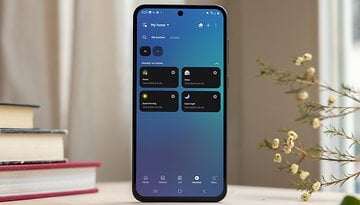WhatsApp: new archive features are coming to the messenger


Read in other languages:
Facebook's WhatsApp developers continue to work on their messenger. In a current version, they are testing new features of the well-known archive.
In the regular WhatsApp version, you can use the archive feature to store old conversations that you no longer want to see in the regular chat. According to WABetaInfo, this feature is no longer called an Archive, however, but is now known as "Read Later".
The new storage room for old chats has not only been renamed but also contains some new features. So the developers also integrate a "vacation mode" here, which was already introduced in an earlier beta. If this is active, already archived chats will no longer be taken out of the archive and automatically be added back to the regular chat.
WhatsApp: new storage locker for old conversations
Chats no longer have to be explicitly muted and moved to the archive so that they no longer appear in regular conversations. The screenshots of WABetaInfo show how Facebook points out the new features in WhatsApp.

If desired, the "vacation mode" can still be deactivated. There is a menu that opens the Archive Settings in Read Later. Here you can not only archive, empty or delete all chats, but also enable or disable the moving of new chats. So it is still possible to have archived chats appear in the "Inbox" again when new messages arrive.
The new function is currently being tested and developed by Facebook in a beta version of WhatsApp. According to WABetaInfo, it will also be available in a future version for regular users of the Messenger.
In addition to the new Read Later, the developers of the Android beta also offer the possibility to adjust the background images for each conversation individually. Furthermore, the opacity of the background can also be adjusted. Along with this new feature they're also shipping 32 new bright and 29 new dark background photos. But you can also choose your own pictures. These features should also be available for all users in the future.
Source: WABetaInfo 1, WABetaInfo 2, WABetaInfo 3






















